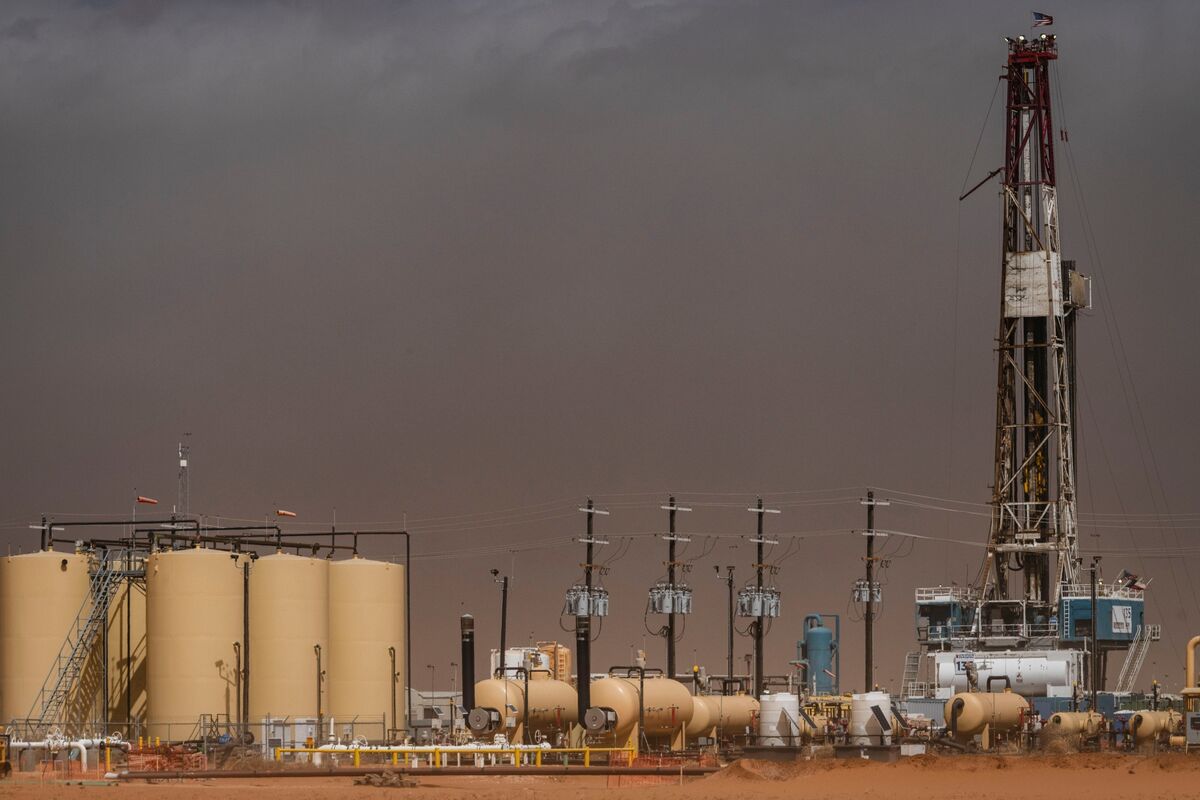Global Energy Shift: The Oil Market Crash - A New Era Dawns?
Editor's Note: The unprecedented oil market crash continues to unfold, reshaping the global energy landscape. This article analyzes the key factors driving this dramatic shift and explores its long-term implications.
Why This Matters:
The oil market crash isn't just a financial event; it's a pivotal moment in global energy history. This seismic shift impacts economies worldwide, accelerates the transition to renewable energy, and forces a reevaluation of geopolitical strategies. We'll explore the cascading effects on energy prices, national economies, and the future of energy production. Key points include the role of OPEC+, the influence of the COVID-19 pandemic, and the burgeoning growth of renewable energy sources.
Key Takeaways:
| Factor | Impact | Long-Term Implications |
|---|---|---|
| OPEC+ Production Cuts | Initial price increases, followed by volatility and eventual price drops | Reduced OPEC influence, increased diversification of energy sources |
| COVID-19 Pandemic | Sharp decline in global demand due to lockdowns and reduced travel | Accelerated adoption of remote work, altered travel patterns |
| Renewable Energy Growth | Increased competitiveness of renewables against fossil fuels | Faster decarbonization, shift towards sustainable energy models |
| Geopolitical Shifts | Power dynamics altered, new alliances formed | Restructuring of global energy relationships |
1. Global Energy Shift: The Oil Market Crash
Introduction: The unprecedented collapse in oil prices in 2020, followed by periods of volatility, marked a watershed moment in the global energy landscape. This wasn't merely a cyclical downturn; it signaled a fundamental shift driven by a confluence of factors, reshaping the future of energy production and consumption.
Key Aspects: The oil market crash was a complex interplay of reduced demand, supply disruptions, and the growing influence of renewable energy. The COVID-19 pandemic significantly curbed global travel and industrial activity, dramatically reducing the demand for oil. Simultaneously, disagreements within OPEC+ regarding production quotas added to the market's instability, leading to price wars and further volatility.
Detailed Analysis: The pandemic's impact was swift and brutal. Lockdowns across the globe brought economies to a standstill, grounding planes and halting industrial production. This unexpected drop in demand caught oil producers off guard, leading to a massive oversupply and a subsequent crash in prices. The subsequent price wars between Saudi Arabia and Russia further exacerbated the situation. The longer-term implications include a faster-than-anticipated transition to renewable energy sources, as their cost-competitiveness improves in relation to oil.
2. Interactive Elements on the Oil Market Crash
Introduction: Understanding the oil market crash requires analyzing interactive elements – the dynamic relationship between supply, demand, and geopolitical factors.
Facets: Key factors influencing the crash include OPEC+ production policies (both cooperation and conflicts), the fluctuating price of natural gas, the impact of government subsidies and regulations, and the growing investment in renewable energy infrastructure. The intertwined nature of these elements makes accurate forecasting challenging, leading to continued market uncertainty.
Summary: These interactive elements highlight the interconnectedness of the global energy market and the increasing complexity of predicting future trends. The influence of geopolitical events and technological advancements has become increasingly critical, demanding a more nuanced understanding of the energy landscape.
3. Advanced Insights on the Oil Market Crash
Introduction: A deeper dive reveals that the oil market crash is part of a broader energy transition driven by climate change concerns, technological advancements, and changing consumer preferences.
Further Analysis: The increased focus on climate change has spurred governments and corporations to invest heavily in renewable energy sources like solar, wind, and hydro. This shift is not only reducing reliance on fossil fuels but also driving innovation and creating new economic opportunities. Experts predict that the long-term consequences of the oil market crash will accelerate this transition, ultimately leading to a more sustainable and diversified energy system.
Closing: The oil market crash represents not an end, but a profound turning point. While short-term volatility will likely persist, the long-term implications point towards a future dominated by renewable energy and a fundamental reshaping of the global energy order.
People Also Ask (NLP-Friendly Answers):
Q1: What is the oil market crash? A: The oil market crash refers to the significant and rapid decline in oil prices, primarily triggered by reduced demand due to the COVID-19 pandemic and supply disruptions stemming from disagreements within OPEC+.
Q2: Why is the oil market crash important? A: This crash is significant because it signals a major shift in the global energy landscape, accelerating the adoption of renewable energy, impacting national economies, and altering geopolitical strategies.
Q3: How can the oil market crash benefit me? A: Lower oil prices can lead to reduced transportation costs and potentially lower energy bills in the short term. However, long-term impacts are more complex and depend on various factors.
Q4: What are the main challenges with the oil market crash? A: Challenges include economic instability in oil-producing nations, the risk of energy shortages in certain regions, and the need for a managed transition to more sustainable energy sources.
Q5: How to get started with investing in renewable energy? A: You can invest in renewable energy through various avenues, such as investing in companies involved in renewable energy production or purchasing green bonds.
Practical Tips for Navigating the Changing Energy Landscape:
Introduction: Adapting to the changing energy landscape requires proactive strategies.
Tips:
- Diversify your energy investments.
- Invest in energy-efficient technologies.
- Support policies that promote renewable energy.
- Educate yourself on sustainable energy practices.
- Reduce your carbon footprint.
- Consider investing in companies involved in renewable energy production or infrastructure.
Summary: The oil market crash is a pivotal event that underscores the need for a transition to sustainable energy sources. Understanding the factors driving this shift and adapting accordingly is crucial for navigating the evolving global energy landscape.
Call to Action: Ready to dive deeper? Subscribe for more insights on the future of energy and the ongoing global energy transition.

